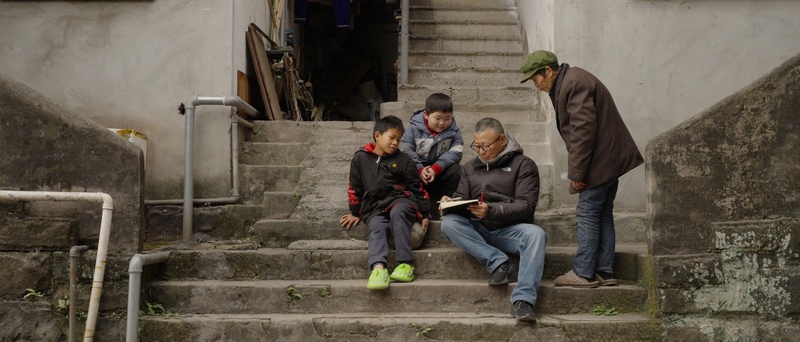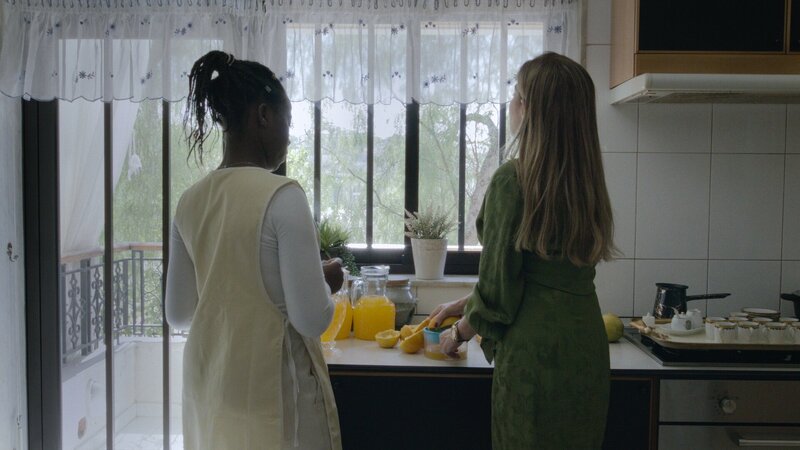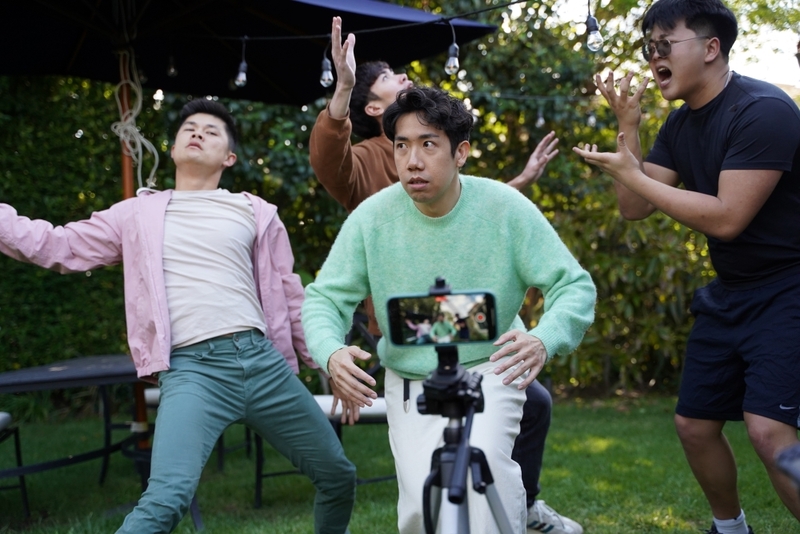
A Reflective Journey Into Memory and Change
MOVIE REVIEW
The Other Side of the Mountain
–
Genre: Documentary, Short
Year Released: 2024
Runtime: 19m
Director(s): Yumeng He
Language: Chinese with English subtitles
Where To Watch: world premiere at the 2024 International Documentary Film Festival Amsterdam, future showings TBD
RAVING REVIEW: Some films invite you to pause, reflect, and soak in the quiet moments that often slip past in life’s rush. THE OTHER SIDE OF THE MOUNTAIN, directed by Yumeng He, is one of those films. This 19-minute documentary is an evocative exploration of memory and modernization, blending a personal story with themes about the passage of time and the cost of progress. By focusing on the relationship between a father and daughter as they journey through Southwestern China, the film creates a delicate balance between intimate emotions and larger cultural narratives, all while asking questions about what is gained and lost in the name of development.
Chongqing, a city reshaped by decades of industrial and economic transformation, is the backdrop for this meditative journey. The filmmaker juxtaposes the city’s untouched natural beauty with the stark patterns of urban renewal, using these visuals to mirror the tension between preservation and change. The landscapes don’t just frame the story—they are a part of the story, embodying the memories and histories disappearing beneath the surface of modernity. The film’s title perfectly captures this duality, hinting at a physical and metaphorical exploration of what lies hidden behind the visible.
At its core, the film thrives on the understated connection between the filmmaker and her father, whose journey to revisit his childhood home becomes a focal point for the narrative. His quiet strength and introspection bring depth to the story, offering a window into how the passage of time shapes both people and places. In Chinese culture, fathers are often likened to mountains—steady and enduring—and this symbolism subtly weaves its way into the film, reinforcing the idea of resilience amid change.
THE OTHER SIDE OF THE MOUNTAIN takes a thoughtful, almost poetic approach to storytelling. Long, steady shots and gentle camera movements allow viewers to linger in each frame, encouraging a sense of introspection. Framing the father within doorways, windows, and reflective surfaces emphasizes the boundaries between his personal history and the collective memory of a rapidly changing world. Every frame feels intentional, designed to evoke reflection and create a lasting emotional impact.
What stands out most is how the film weaves personal and historical narratives. The father’s return to his childhood home is deeply personal. Yet, it also intersects with the larger story of Chongqing’s transformation during the Third Front Construction and the subsequent waves of modernization. Blending these two layers—personal memory and history—creates a rich exploration that resonates on multiple levels. It’s a story about one man’s journey and how entire communities grapple with the weight of change and the erasure of their past.
Of course, this kind of storytelling comes with its challenges. The film’s slow pacing and subtle narrative might feel inaccessible to viewers who prefer traditional structures or faster-moving plots. It requires active engagement, as the visual and auditory aspects demand close attention to appreciate the layers of meaning. In addition to its storytelling, the film also explores the broader role of visual media in preserving memory. By documenting her father’s journey to a changed homeland, the filmmaker questions how images preserve and distort our understanding of the past.
Ultimately, THE OTHER SIDE OF THE MOUNTAIN is an invitation to reflect. It’s not a film that spoon-feeds answers or resolves its questions neatly. Instead, it leaves viewers with lingering thoughts about the impermanence of life, the weight of memory, and the importance of holding onto what truly matters.
Please visit https://linktr.ee/overlyhonestr for more reviews.
You can follow me on Letterboxd, Instagram, Twitter, and YouTube. My social media accounts can also be found on most platforms by searching Overly Honest Reviews.
I’m always happy to hear from my readers; please say hi or send me any questions about movies.
[photo courtesy of YUMENG HE FILM]
DISCLAIMER:
At Overly Honest Movie Reviews, we value honesty and transparency. Occasionally, we receive free items for review, including DVDs, Blu-rays, CDs, Vinyl, Books, etc. We assure you that these arrangements do not influence our reviews, as we are committed to providing unbiased and sincere evaluations. We aim to help you make informed entertainment choices, regardless of our relationship with distributors or producers.
Amazon Affiliate Links:
Additionally, this site contains Amazon affiliate links. If you purchase through these links, we may receive a commission. This affiliate arrangement does not affect our commitment to honest reviews and helps support our site. We appreciate your trust and support in navigating these links.



Average Rating